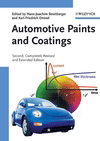$1.4 Million Grant to Spur PFAS Cleanup

The University of California system has awarded a $1.4 million grant to UC Riverside chemical and environmental engineering professor Haizhou Liu and a collaborative team from several UC campuses to combat water scarcity by developing strategies to clean and reuse water for agriculture. With California facing climate change and dwindling water supplies, the research comes at a pivotal moment.
“Water scarcity is one of the most pressing challenges in agriculture today,” said Liu, a faculty member in the Bourns College of Engineering. “Our project not only aims to improve water use efficiency but also to improve food safety, protect public health and ensure a sustainable agricultural future.”
The grant will allow Liu and his research team to develop methods to remove chemical pollutants and pathogens from wastewater supplies. Pollutants and pathogens can significantly hinder crop growth when contaminated recycled wastewater is used for irrigation.
The research expands on Liu’s innovative approaches to remove forever chemicals from polluted water sources. Ample wastewater supplies from sewage treatment plants often contain forever chemicals — per- and polyfluoroalkyl substances, or PFAS — as well as other chemical pollutants and harmful microorganisms.
In 2022, Liu published a breakthrough study showing how the stubbornly strong fluorine-to-carbon chemical bonds in PFAS compounds can be broken using a combination of hydrogen and short-wavelength ultraviolet light. Earlier this year, Liu’s team demonstrated how briny wastewater containing PFAS can be treated using ultraviolet light and chemical reactions catalyzed by naturally occurring salts in the wastewater.
Liu will work with scientists at UC Davis, UC Santa Barbara and the UC Agriculture and Natural Resources extension centers.
The grant project will also test irrigation methods that balance water conservation with food production, evaluate soil health and microbial ecosystems under recycled water irrigation to ensure long-term viability, and develop on-farm management practices to prevent contaminant transfer to crops.
Looking for a reprint of this article?
From high-res PDFs to custom plaques, order your copy today!







